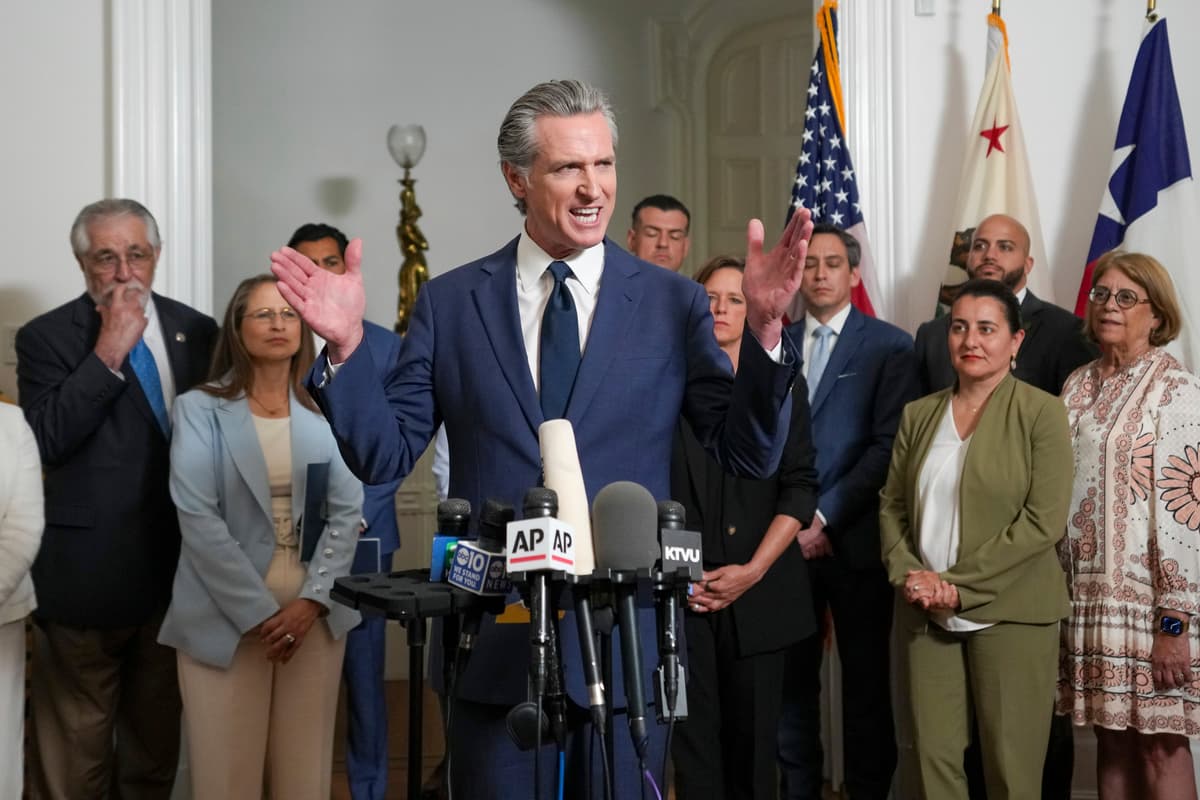California Governor Gavin Newsom is recalibrating his political stance as he eyes the 2028 Democratic presidential nomination. Recent polling indicates a surge in support for Newsom, highlighting a potential shift in the Democratic Party’s direction, especially as the party grapples with a net favorability rating hitting a three-year low, according to Newsweek.
In a striking transformation, Newsom is moving from his traditionally liberal viewpoints toward a more centrist approach aimed at appealing to independent voters disillusioned with both the Democratic Party and right-wing factions. This shift has become particularly evident in his stance on fossil fuels. Facing record-high gas prices, which could reach $8 per gallon, Newsom is adjusting his policies regarding the oil industry. This change comes in the wake of announcements from two major refineries, Phillips 66 and Valero, regarding their closures, raising concerns about fuel supply in California, the nation’s second-largest gasoline market.
“We are all the beneficiaries of oil and gas. No one’s naive about that,” Newsom stated at a recent press conference, acknowledging the state’s reliance on fossil fuels during what he termed an inevitable energy “transition.” His administration is currently negotiating with members of his party on a proposal to increase oil production, which could bypass existing climate regulations by providing blanket environmental approval for new oil wells.
This policy reversal marks a significant change for Newsom, who previously referred to the climate crisis as a “fossil fuel crisis” during a 2023 United Nations summit. In April, he directed the California Energy Commission to collaborate with refiners on fuel supply planning, resulting in recommendations that align closely with industry priorities. The average gas price in California currently stands at $4.49 per gallon, significantly higher than the national average, which may further compel Newsom to act.
Yet, the governor faces opposition from more than 120 environmental groups that have criticized his plan, labeling it an industry giveaway that could jeopardize air and water quality. Critics argue that this move contradicts his previous efforts to combat climate change.
In a broader context, Newsom has made several other notable shifts in policy that suggest a distancing from his previous progressive ideals. Recently, he proposed cuts to healthcare benefits for undocumented immigrants, citing California’s budget deficit of $12 billion. This proposal, which passed in June, represents a stark contrast to last year’s initiative that extended free healthcare to all low-income adults, regardless of immigration status.
Moreover, his approach to homelessness has evolved dramatically. In May, he presented a plan for cities to clear encampments, stating, “No more excuses. It is time to take back the streets.” This move, along with his hosting of prominent Republican figures like former White House strategist Steve Bannon and activist Charlie Kirk on his podcast, underscores his outreach to a broader political audience.
Critics such as Norman Solomon, national director of the progressive group RootsAction, have expressed concern over Newsom’s shift. He remarked that the governor is “willing to throw basic decency under the 2028 campaign bus,” suggesting that Newsom’s ambition may be overshadowing his commitment to progressive values.
As the 2028 election approaches, Newsom’s evolving political stance will likely continue to attract scrutiny and debate. His recent policy changes illustrate the complex balancing act he must perform to secure a broader base of support while navigating the challenges facing California.
